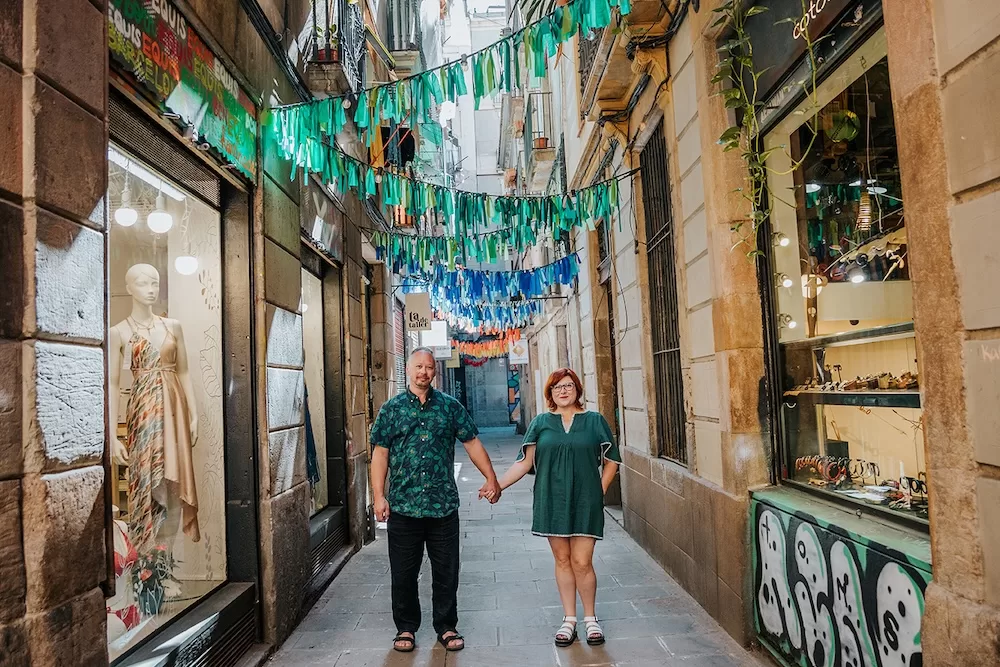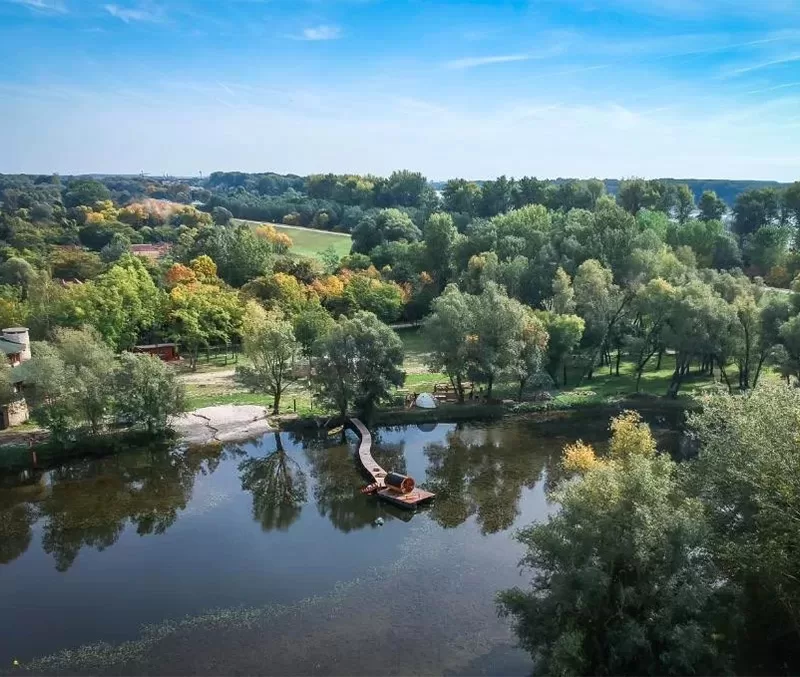The New American Dream? It’s Moving Abroad
Expat consultant advises more and more Americans looking to take the plunge

When Jen Barnett launched her expat consultancy with her husband Brett a couple years ago, she had no idea the results of the 2024 election would drive countless Americans to start to seriously consider moving abroad. But that is precisely what has come to pass, resulting in a massive spike in interest and a major business opportunity.
Their company, Expatsi, is now riding high, while the couple continues to enjoy expat life in Merida, Mexico, where they moved last year. We recently spoke to Jen about her early interest in travel, how long it usually takes to make an overseas move, why people choose to move abroad, and the surprising findings of her company’s suddenly very popular online survey.
Escape Artist: You grew up in Birmingham, Alabama, which isn’t the most cosmopolitan city. How did you start thinking about an international life?
Jen Barnett: I attended a small religious school for 1st grade, and for some reason the school held “France Week,” where we learned a few words of French and pretended to dine at outdoor cafes. I was hooked. France was the first foreign country I visited, in high school, and I tried to move there on a whim at 21. That’s how I learned that you can’t just pick up and move to another country!

That sounds like an interesting story. Could you share it?
I was working my way through graduate school in marketing and I really wasn’t emotionally ready for it. On the first day of my last semester, a professor said: “If you don’t want to be here, then leave.” I thought, “Well, I don’t want to be here. I want to be in France.”
I grabbed my bag, walked to the administration office, dropped out, drove to a travel agent, and asked for a one-way ticket to Paris. Thankfully, the agent talked me into booking a round-trip, (the one-way ticket cost $1800, while the round-trip was about $450), while I started trying to figure out how to move there. Soon I realized just how difficult it would be. I did go to Paris, and it was wonderful, but instead of relocating, I spent a week in a hostel thinking about what I wanted to do next in life. If I had the chance to go back, I’d do things so differently!
You and your husband Brett had been talking about moving abroad for years, but finally during the pandemic started moving the plan forward. What gave you that push?
We were already inspired to move for political reasons, and 2020 and the pandemic exacerbated that. Masking and social distancing were contentious issues in our family. The election wasn’t enough of a mandate for us against what was happening in the U.S., so we put our plans into high gear.
When did you begin to realize that the research and preparation you were doing to move abroad could help other people follow in your footsteps?
After we visited Mérida and realized that we wanted to move much sooner than the 10 years we’d planned, I had the idea to turn our data into the Expatsi Test and see what would happen. I love building new products.

You created the survey to get an idea what people want when they start thinking of moving abroad. How many people have taken it, and what are your most interesting findings?
The test has been taken 165,000 times, but some people take it more than once. The post-election data has been some of the most interesting. Here’s the breakdown of why people said they want to leave the U.S., before and after the election:
| 2024 Pre-election | |
| For adventure / enrichment / growth | 65.2% |
| The U.S. is too divided | 47.4% |
| To avoid the threat of gun violence | 43.5% |
| To save money | 42.7% |
| The U.S. is too conservative | 42.3% |
| 2024 Post-election | |
| The U.S. is too conservative | 72.6% |
| The U.S. is too divided | 58.7% |
| For more or different freedoms | 56.5% |
| To avoid the threat of gun violence | 52.9% |
| For adventure / enrichment / growth | 48.7% |
In nearly three years, no other reason had ever come close to adventure/enrichment/growth, so this is a big deal. Also, we were amazed that two of three people want to move to Europe, but only 4 percent to countries with a higher cost of living. I guess that’s why Portugal is so popular.
Wow, so before the election, the top reason, chosen by nearly 2 of 3, was adventure. Today the top reason, chosen by nearly 3 of 4, is the U.S. is too conservative. Do your survey takers lean one way or the other politically, and does this influence your guidance?
Our followers have been left leaning at least since Roe v. Wade was overturned, and it definitely affects our suggestions. For example, most of our clients aren’t interested in Malta, despite its friendly golden visa, because of its strict abortion laws.
Have your findings altered your work in other ways, changed how you handle clients?
It’s given us the confidence to be open with our beliefs and connect better with our clients, which makes us enjoy the work even more.

After filling out the survey, I was a little surprised your algorithm recommended Uruguay but not Argentina, where I live. Any idea why it might make a choice like that?
Great question! These are very similar countries according to our data. Uruguay gets a couple of extra points for higher-ranking infrastructure and options for non-religious people, if those were important. Otherwise, Argentina might be tied with other options and have come in 11th.
It’s been two years since you launched the Expatsi Test. How’s business going, and have you seen a spike in recent weeks?
We built the quiz in 2022 and have slowly ramped up over time. Because we start with folks at the very beginning, most are still in the process, but we do have folks living in Germany, Finland, Albania, the Netherlands, Portugal, Mexico, and Panama.
Yes, our search traffic spiked the day after the vote. Of the 165,000 times people have taken the test, 47,450 have been since the election (a 20x increase). Also, in the past month, Expatsi revenue from moving abroad clients has been equal to our revenue the past two years.

You and Brett took 5-6 years to make your move abroad once you decided to do it. How long do your clients generally take to get it done, and what do you advise is a reasonable timeframe for moving through the six stages, from ideation to settling in?
I think two years is the perfect amount of time. It may take longer if you have to start a job search or start a new company like us, or much less if you make quick decisions and have money or remote work already lined up.
What would you say, if anything, is the most crucial element of moving abroad, the key step or bit of knowledge needed that could make or break the whole endeavor?
Self-awareness. Over the past few weeks, a lady has been kind of famous for a CNN article about hating life in France. She doesn’t like the produce, she can’t deal with them messing up her drink order. She calls it a nightmare. This is wild to me. If you can’t live without your drink order (and listen, I’m very committed to fizzy water, cafe con leche, and dry white wine), at least know better than to move to a rural town that can’t produce it on demand. I think experiencing a little discomfort is great for growth.

Finally, besides reaching out to Expatsi, what advice would you give people who want to move abroad, but are unsure how to do it or whether they’re capable of doing it?
Find a community. What seems daunting and difficult on your own can be fun—even if it’s still difficult—with others. People can be snarky online, but keep searching until you find your people.
Read More on 7 Fears Keeping You from Moving Abroad (and How to Beat Them)
—————–
Alabama-born Jen Barnett, a former marketing executive, lives in Merida, Mexico, with her husband Brett, running their business Expatsi. Follow her on Instagram.
































